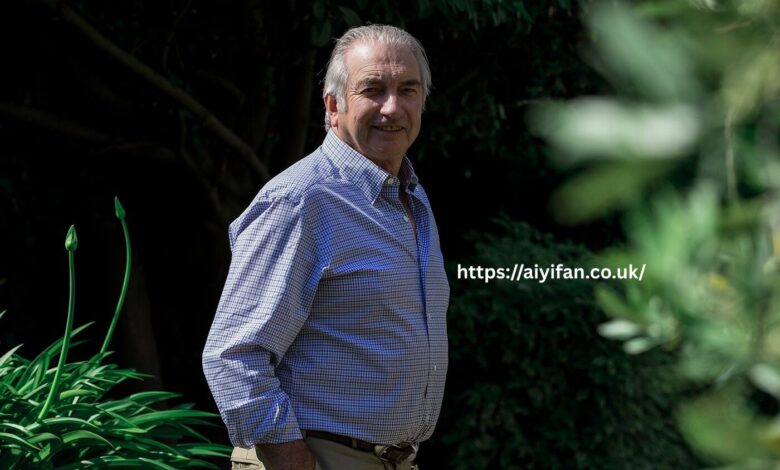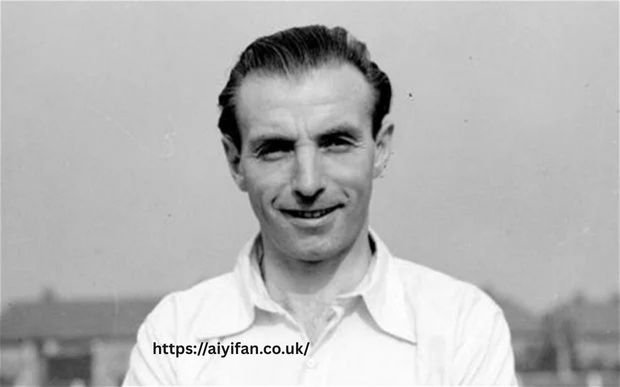Stanley Matthews The Wizard of Dribble Who Changed Football Forever

Stanley Matthews Football has produced countless legends, but only a few reshaped the sport so profoundly that their name feels eternal. Among them stands Sir Stanley Matthews famously called “The Wizard of Dribble.” Matthews wasn’t just a great player; he was a pioneer who transformed how football was played and how players approached their careers. From his dazzling dribbling to his unmatched longevity, Matthews’ story is as inspiring today as it was in the golden days of English football.
Early Life and Humble Beginnings
Stanley Matthews was born on February 1, 1915, in Stoke-on-Trent, England. The son of a local barber, life was modest. His father, known as “The Fighting Barber” due to his boxing background, instilled discipline and toughness into young Stanley. While many kids in the industrial city spent their time in the factories, Matthews’ world revolved around a ball.
From the moment he laced up his boots, it was clear he had a natural gift. His speed, balance, and close control stood out on cobbled streets and school playgrounds. At just 15 years old, he signed with Stoke City as an office boy while developing his football skills. By 1932, at age 17, he had already made his professional debut.
The Birth of the “Wizard of Dribble”
Matthews was unlike any winger of his time. In an era when football was physical and direct, he played with artistry. He had blistering pace, but what truly mesmerized crowds was his dribbling ability. He would glide past defenders with a combination of body feints, sudden bursts of speed, and exquisite ball control.
This style earned him the nickname “The Wizard of Dribble.” What set him apart wasn’t just skill, but consistency. He rarely lost the ball, hardly ever fouled opponents, and preferred beating them cleanly with guile. Defenders dreaded facing him because he could change direction in a blink and leave them chasing shadows.
Career at Stoke City and Blackpool
Matthews’ career spanned an incredible 33 years at the top level, making him one of the longest-serving professionals in football history.
- Stoke City
At Stoke, he became the darling of the fans. His dazzling runs on the right wing were central to the team’s rise. In 1935-36, Matthews helped Stoke achieve their best-ever league finish at the time: fourth in the First Division.
However, his career momentum was interrupted by World War II. Like many players, he served his country during the war, playing in unofficial wartime matches to keep morale high.
- Blackpool
In 1947, Matthews transferred to Blackpool, where he reached legendary status. It was here that he delivered his most iconic performance: the 1953 FA Cup Final. Blackpool, trailing 3-1 to Bolton Wanderers, mounted a comeback with Matthews running the show. His dazzling dribbles and crosses tore Bolton apart. Blackpool won 4-3, and though Stan Mortensen scored a hat-trick, the game is forever remembered as “The Matthews Final.”
At 38 years old, Matthews proved age was no barrier to brilliance.
International Career Carrying England’s Hopes
For England, Matthews was a symbol of flair. He earned 54 caps between 1934 and 1957, scoring 11 goals. His highlight came in 1946 against Belgium, when he produced a dazzling solo display in England’s first post-war international.
He also played a vital role in England’s qualification for the 1954 FIFA World Cup. Though his international appearances were sometimes limited by selection politics, whenever he wore the shirt, he was unforgettable. He was even selected for England at the age of 42, proving his unparalleled fitness and form.
Fitness, Discipline, and Longevity
One of the most remarkable things about Stanley Matthews was his longevity. He retired in 1965 at age 50, a milestone almost unimaginable in today’s physically demanding game.
How did he last so long?
- Fitness Regimen: Matthews followed a strict diet long before nutrition became standard in sports. He avoided alcohol and red meat, preferred fresh fruit and vegetables, and was fanatical about maintaining his condition.
- Self-Discipline: Even in the off-season, he trained rigorously. While others rested, Matthews would run on the beach with weights strapped to his ankles.
- Love for the Game: His motivation was pure passion. He didn’t play for money or fame; he simply couldn’t imagine life without football.
This discipline made him a role model for future generations.
Influence Beyond the Pitch
Matthews wasn’t just a footballer; he was a global ambassador for the sport. After his playing career, he coached in Africa, especially in South Africa during apartheid. He defied segregation laws by coaching young Black players, believing football belonged to everyone. His work earned him immense respect, and he became a symbol of equality and hope.
Honours and Recognition
Though Matthews never won the league title, his individual accolades and contributions to the sport remain unmatched:
- First ever Ballon d’Or winner (1956) at the age of 41.
- Knighthood in 1965 while still an active player the only footballer ever to receive such an honor.
- Inducted into the English Football Hall of Fame.
- The “Stanley Matthews Way” stadium road in Stoke and numerous statues commemorate his legacy.

Legacy The Man Who Changed Football Forever
Stanley Matthews wasn’t just a great player he changed perceptions of what football could be.
- He showed that skill and artistry could outshine brute force.
- He proved that longevity was possible with discipline, inspiring players to extend their careers.
- He demonstrated that footballers could also be ambassadors for social change, not just athletes.
To this day, whenever we talk about the artistry of dribblers like Lionel Messi, George Best, or Ronaldinho, there’s a direct line back to Stanley Matthews. He paved the way for the modern winger, combining entertainment with effectiveness.
Conclusion
Stanley Matthews’ story is more than just football history it’s a lesson in passion, perseverance, and humility. From the working-class streets of Stoke-on-Trent to the grand stages of Wembley, he inspired millions with his talent and discipline. He played not for glory or riches, but for the sheer love of the game. That’s why even today, decades after his retirement and passing in 2000, Stanley Matthews remains etched in memory as “The Wizard of Dribble” the man who truly changed football forever.





